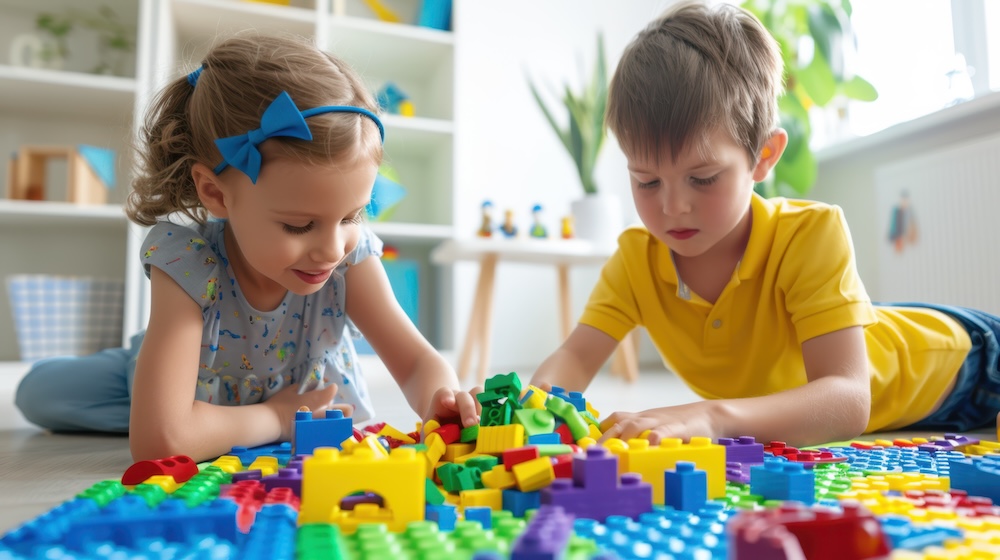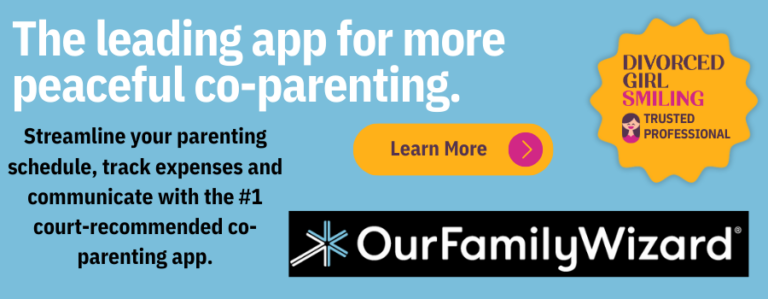Parents are constantly working to instill good values and positive behavior in their children, but kids also learn directly from our actions, even when we’re not actively working to teach them. More often than not, despite our best efforts, children will absorb far more from what we do than what we say. When it comes to divorce and children, they will have a front row seat to observe how their parents handle complex emotions and conflict.
Your kids won’t expect you to stick every landing perfectly, but they will learn a considerable amount from how you typically find your way through the challenges of co-parenting.
When it comes to divorce and children, consider these 3 C’s to make sure your child’s separation education provides them with a strong base for navigating conflict in the future.
The 3 C’s in What Your Children will Learn During and After Your Divorce
1. Conflict Communication
Very few parents will go through a separation or a divorce without at least some conflict. The end of a significant relationship will almost always be accompanied by strong emotions. No one expects parents to completely stifle their emotional reactions; however, when strong feelings create seemingly never-ending conflict or harsh arguments, it’s time to examine how you’re teaching your children to treat others when in the midst of a disagreement.
Snide comments, silent treatments, stonewalling, refusal to compromise: these are all traits and actions that you likely do not wish to instill on your children, so be sure to minimize how often you display them yourself. When you do slip up, you have to make the choice to rise above past mistakes and make amends. You’ll be teaching your child not only how to move beyond temporary hiccups, but to also be humble when it comes to your own behavior. No one can claim to be perfect, and you’ll be able to demonstrate early and often how imperfection doesn’t have to lead to continued conflict.
If you find yourself repeating the same bad communication behaviors, being able to change the triggers that lead to those situations can also teach your children adaptability. The same methods of communication you used before your separation may no longer be appropriate for you and your co-parent, but changing your methods and keeping up with positive coparenting will demonstrate that there is never only one solution to a problem.
2. Coping
When going through any difficult situation, self-care can easily fall by the wayside. Manifesting in many different ways—poor eating habits, hypersensitivity, lethargy—poor coping strategies can leave long-lasting impressions on children, affecting how they respond to similar strains on their psyches well into adulthood. Separation can elicit new and stressful emotions that can leave you feeling drained, unmotivated and unable to process stressors healthily. Nevertheless, it’s important that you strive for exhibiting positive coping strategies for your children because they will likely be the same methods they employ as adults.
Succumbing to the occasional sweet to soothe worn nerves is far from terrible, but how do you know when your coping strategies have gone off the rails? If your methods for relaxation begin to build up negative or unhealthy behaviors, it’s time to reevaluate how you’re handling stress in your daily life. You can practice self-care in a lot of simple ways, but if you’re experiencing stress or anguish that is beyond your own capabilities to handle alone, it may be time to seek professional help.
Consulting a therapist to guide you through these difficulties will show your children that asking for help when needed is an act of courage. Seeking assistance (whether it’s professional or from friends and family) when our own strength is insufficient can teach children that perseverance doesn’t require solitude and that community can be a source of great comfort.
3. Compassion
It can be hard to be selfless during a divorce or separation. With so much of daily-life changing, it’s easy to surrender to the urge to grasp at every opportunity to fulfill your own wants or desires. More often than not, however, this impulse can lead to petty behavior that interferes with any chance at compromise. When under the control of this mindset, requests from your co-parent, even when innocuous or reasonable, can quickly be dismissed out of hand.
Combatting this urge, putting your child’s needs ahead of your own (especially when it means granting a favor to your co-parent) can teach your kids a great deal about compassion and understanding. They may not recognize it when they’re young, but as they grow, they’ll be able to see how you modeled your decisions around their best interests, even when it meant granting requests from their other parent. You will be showing them that putting the needs of others ahead of their own is possible even under the most difficult of circumstances.
In closing, your children will be looking to you—watching how you navigate obstacles, how you treat others, how you move beyond conflict—for their entire lives. With the unavoidable level of uncertainty that accompanies it, separation will cause your children to watch your behavior during this time even more intently. By being aware of how your actions will teach your children about conflict, and striving to set a great example, you’ll be giving them the tools to cope with similar situations well into adulthood.

Katharine Rupp is a Legal Liaison and Judicial Education Coordinator with OurFamilyWizard. She also works as a Sacramento-based family law attorney. Katharine has successfully combined her legal background and personal experiences with family law issues to build a career focused on helping individuals navigate an often confusing, frustrating, and complex family law legal system. She chose the field of family law because she enjoys connecting with people, resolving complicated problems, and helping people to move forward with their lives.





















Excellent post! …..should be sent to every mediator and divorce attorney and should be given to all of their clients.
Point 4 is amazing but I’d reword it a little if I could;
4. You don’t belong in the middle of your parents’ break-up. You are not the reason for their breakup. Remember they love you.
Great post
I learn new information from your blog, you are doing a great job. Keep it up.